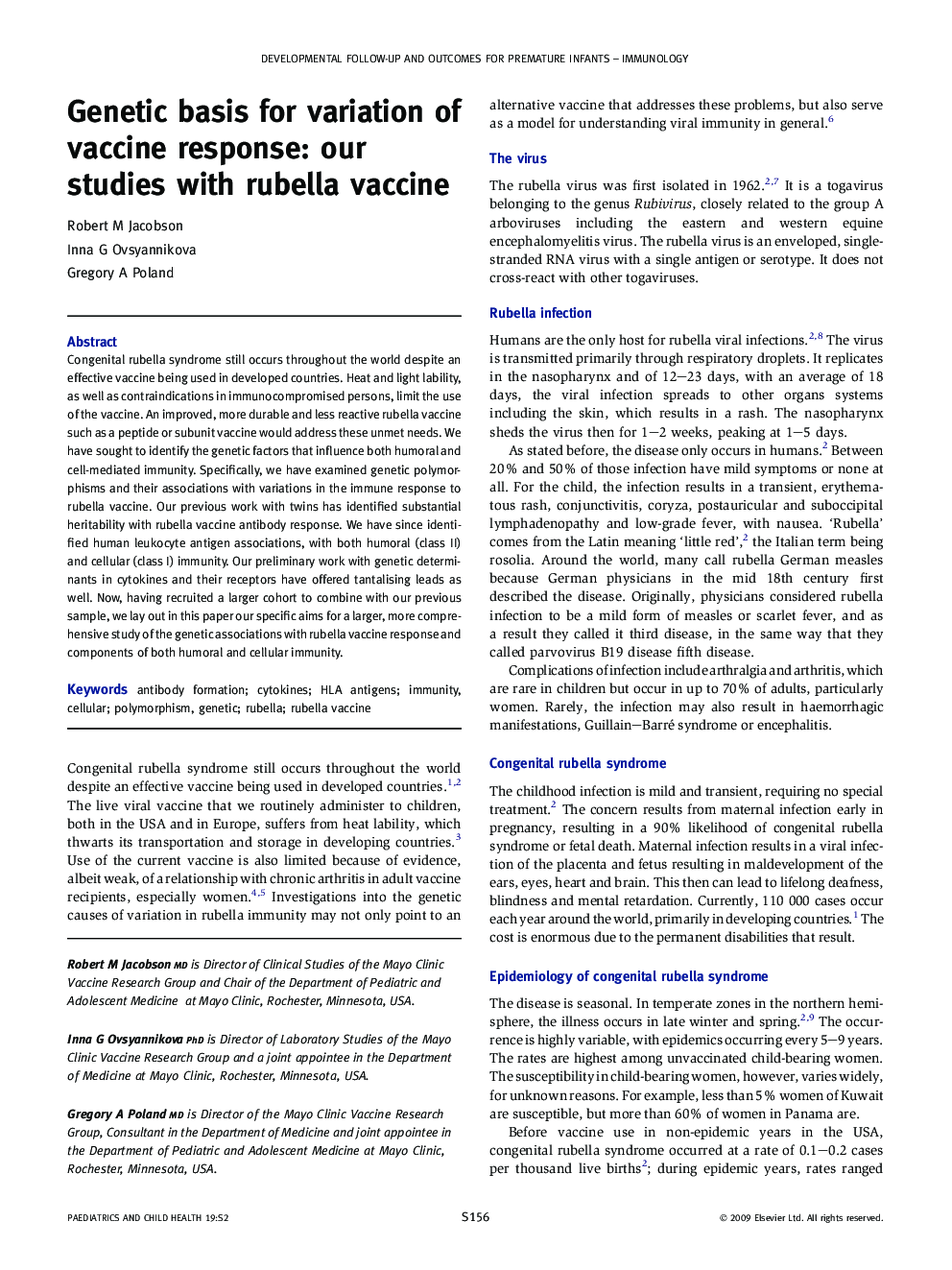| Article ID | Journal | Published Year | Pages | File Type |
|---|---|---|---|---|
| 4172896 | Paediatrics and Child Health | 2009 | 4 Pages |
Abstract
Congenital rubella syndrome still occurs throughout the world despite an effective vaccine being used in developed countries. Heat and light lability, as well as contraindications in immunocompromised persons, limit the use of the vaccine. An improved, more durable and less reactive rubella vaccine such as a peptide or subunit vaccine would address these unmet needs. We have sought to identify the genetic factors that influence both humoral and cell-mediated immunity. Specifically, we have examined genetic polymorphisms and their associations with variations in the immune response to rubella vaccine. Our previous work with twins has identified substantial heritability with rubella vaccine antibody response. We have since identified human leukocyte antigen associations, with both humoral (class II) and cellular (class I) immunity. Our preliminary work with genetic determinants in cytokines and their receptors have offered tantalising leads as well. Now, having recruited a larger cohort to combine with our previous sample, we lay out in this paper our specific aims for a larger, more comprehensive study of the genetic associations with rubella vaccine response and components of both humoral and cellular immunity.
Keywords
Related Topics
Health Sciences
Medicine and Dentistry
Perinatology, Pediatrics and Child Health
Authors
Robert M. Jacobson, Inna G. Ovsyannikova, Gregory A. Poland,
